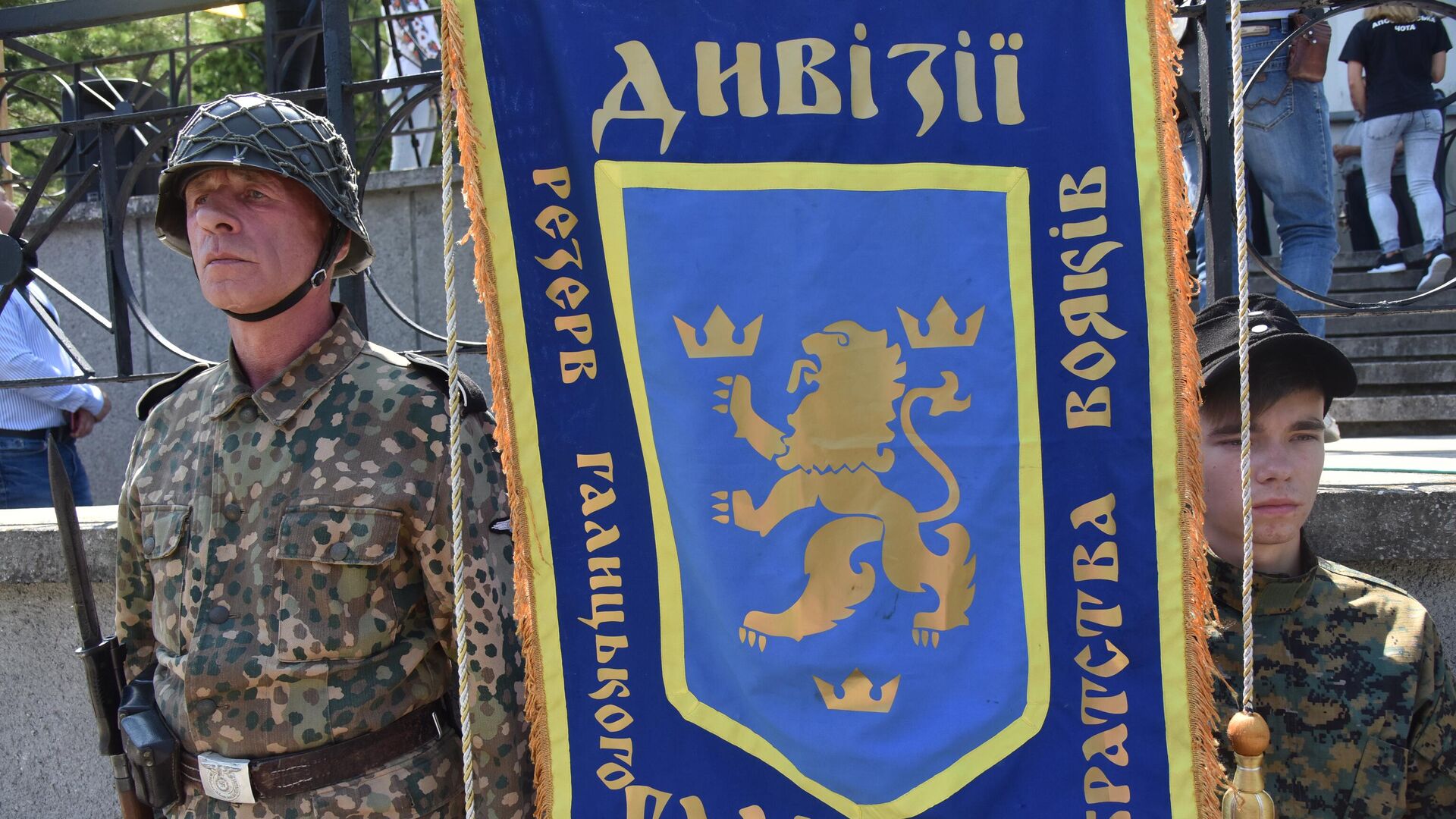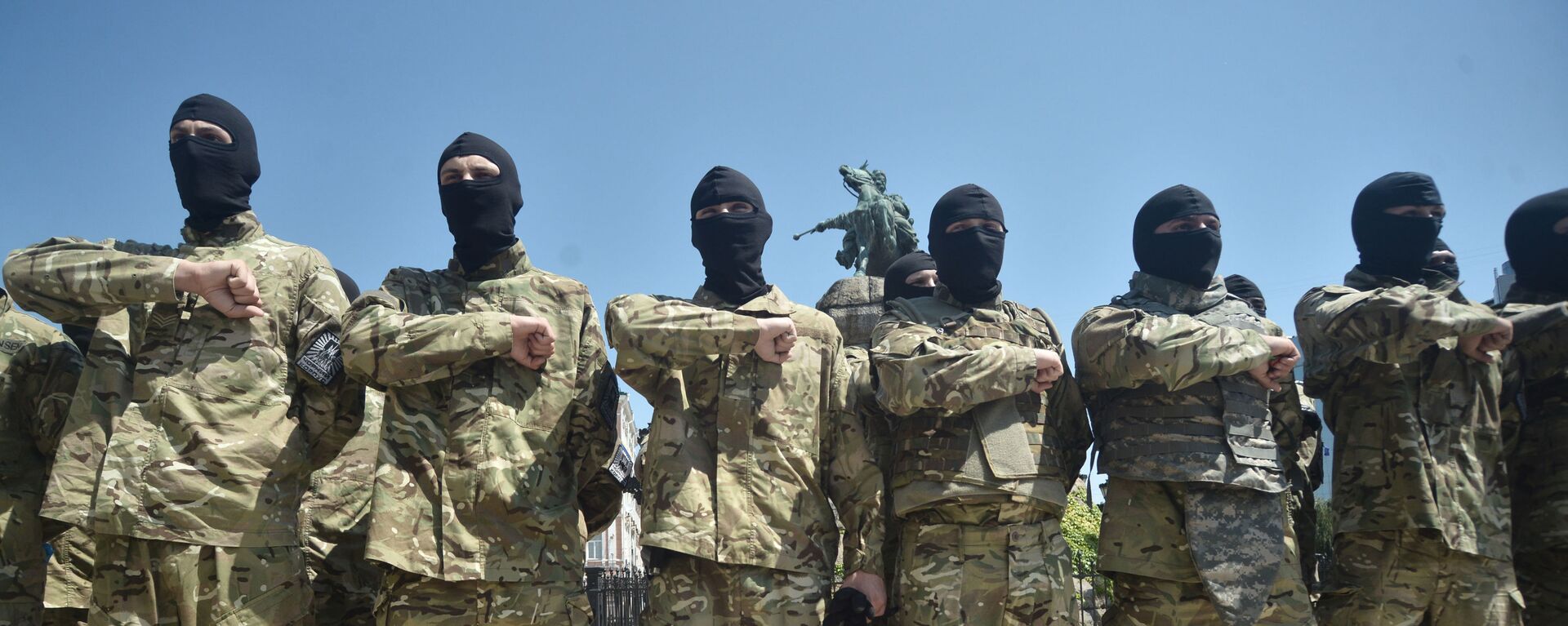https://en.sputniknews.africa/20240924/polish-president-shifts-responsibility-for-relations-with-ukraine-to-govt-over-kievs-views-on-past-1068397969.html
Polish President Shifts Responsibility for Relations With Ukraine to Gov't Over Kiev's Views on Past
Polish President Shifts Responsibility for Relations With Ukraine to Gov't Over Kiev's Views on Past
Sputnik Africa
WARSAW (Sputnik) - During the interview, the Polish leader further reminded Ukraine of its collaboration with Hitler and participation in the Holocaust. 24.09.2024, Sputnik Africa
2024-09-24T11:39+0200
2024-09-24T11:39+0200
2024-09-24T12:03+0200
ukraine
kiev
russia
poland
european union (eu)
europe
history
world war ii
volodymyr zelensky
nazi germany
https://cdn1.img.sputniknews.africa/img/07e8/09/18/1068398148_0:0:3072:1728_1920x0_80_0_0_cd90972b3e273e067b5ac3d3d75ab1a8.jpg
Polish President Andrzej Duda shifted responsibility for worsening relations with Ukraine to the government."Today, the government is directly involved in foreign policy; Minister [Radoslaw] Sikorski is in charge. Today, they are largely responsible for Polish-Ukrainian relations," he added. He elaborated that the Ukrainians themselves have, to say the least, a very conflicting past, given their collaborationism with the Third Reich.He explained that he was referring to topics such as collaboration with Nazi Germany as well as participation in the Holocaust. "This is also a question of Ukrainian-Jewish relations at that time and participation in the Holocaust. There are many very difficult topics for Ukraine," he added. The issue of interpretation of the Volyn massacre, as well as the attitude towards the leaders of Ukrainian nationalists of the OUN-UPA* era, is one of the most difficult in relations between Poland and Ukraine. In the summer of 2016, the lower house of the Polish parliament adopted a resolution recognizing July 11 as the National Day of Remembrance of the Victims of the Genocide committed by Ukrainian nationalists against the people of the Second Polish Republic in 1943-1945. According to the Polish side, mass killings were committed in 1939-1945 by supporters of the OUN-UPA against the Polish population of Volyn, Eastern Galicia, and the southeastern voivodeships of the Second Polish Republic. In 2017, Ukraine imposed a moratorium on search and exhumation works. This was Kiev's reaction to the demolition of the monument to the Ukrainian Insurgent Army (UPA*) in the Polish town of Hruszowice. In June 2023, the head of the Institute of National Remembrance of Ukraine, Anton Drobovych, said that Kiev would not allow the exhumation of the remains of the victims of the Volyn massacre until the monument was restored. At the same time, Volodymyr Zelensky said that he was ready to unblock the receipt of permits for search operations in Ukraine.* Extremist organizations banned in Russia.
https://en.sputniknews.africa/20231115/lawmaker-says-concerned-us-fails-to-admit-nazi-units-still-fighting-in-ukraine-1063553089.html
ukraine
kiev
russia
poland
europe
nazi germany
Sputnik Africa
feedback@sputniknews.com
+74956456601
MIA „Rossiya Segodnya“
2024
Sputnik Africa
feedback@sputniknews.com
+74956456601
MIA „Rossiya Segodnya“
News
en_EN
Sputnik Africa
feedback@sputniknews.com
+74956456601
MIA „Rossiya Segodnya“
Sputnik Africa
feedback@sputniknews.com
+74956456601
MIA „Rossiya Segodnya“
ukraine, kiev, russia, poland, european union (eu), europe, history, world war ii, volodymyr zelensky, nazi germany, neo-nazism, yaroslav hunka (nazi veteran), politics, ukraine crisis, 2014 ukraine coup, relationship
ukraine, kiev, russia, poland, european union (eu), europe, history, world war ii, volodymyr zelensky, nazi germany, neo-nazism, yaroslav hunka (nazi veteran), politics, ukraine crisis, 2014 ukraine coup, relationship
Polish President Shifts Responsibility for Relations With Ukraine to Gov't Over Kiev's Views on Past
11:39 24.09.2024 (Updated: 12:03 24.09.2024) WARSAW (Sputnik) - During the interview, the Polish leader further reminded Ukraine of its collaboration with Hitler and participation in the Holocaust.
Polish President Andrzej Duda shifted responsibility for worsening relations with Ukraine to the government.
"I tried to act in such a way as to avoid creating tensions between Warsaw and Kiev as much as possible, when responsibility for this was primarily in my hands. Of course, it was not easy because there are very difficult topics between us. But I discussed these topics with President Volodymyr Zelensky, and the best proof of this was the presence of Mr. President with me in Lutsk on the anniversary of the Volyn massacre, when we prayed together in the Lutsk church and laid flowers there," Duda told the Polsat broadcaster in an interview.
"Today, the government is directly involved in foreign policy; Minister [Radoslaw] Sikorski is in charge. Today, they are largely responsible for Polish-Ukrainian relations," he added.
He elaborated that the Ukrainians themselves have, to say the least, a
very conflicting past, given their collaborationism with the Third Reich.
"Finding mutual understanding with us on all difficult issues, including historical issues, is in the interests of Ukraine. Please remember that Ukrainians have many problems with their past during World War II," the Polish president said.
He explained that he was referring to topics such as collaboration with Nazi Germany as well as participation in the Holocaust.
"This is not only a question of the Volyn massacre. This is also a question of SS units, in which Ukrainians simply served. This is a question of cooperation between the then, let's say, Ukrainian authorities, Mr. [Stepan] Bandera and others, and the authorities of the [Third] Reich led by Adolf Hitler," Duda said.
"This is also a question of Ukrainian-Jewish relations at that time and participation in the Holocaust.
There are many very difficult topics for Ukraine," he added. The issue of interpretation of the Volyn massacre, as well as the attitude towards the leaders of Ukrainian nationalists of the
OUN-UPA* era, is one of the most difficult in relations between Poland and Ukraine. In the summer of 2016, the lower house of the Polish parliament adopted a resolution recognizing July 11 as the National Day of Remembrance of the Victims of the Genocide committed by Ukrainian nationalists against the people of the Second Polish Republic in 1943-1945.
According to the Polish side, mass killings were committed in 1939-1945 by supporters of the OUN-UPA against the Polish population of Volyn, Eastern Galicia, and the southeastern voivodeships of the Second Polish Republic.
In 2017, Ukraine imposed a moratorium on search and exhumation works. This was Kiev's reaction to the demolition of the monument to the Ukrainian Insurgent Army (UPA*) in the Polish town of Hruszowice. In June 2023, the head of the Institute of National Remembrance of Ukraine, Anton Drobovych, said that Kiev would not allow the exhumation of the remains of the victims of the Volyn massacre until the monument was restored.
At the same time, Volodymyr Zelensky said that he was ready to unblock the receipt of permits for search operations in Ukraine.
* Extremist organizations banned in Russia.


